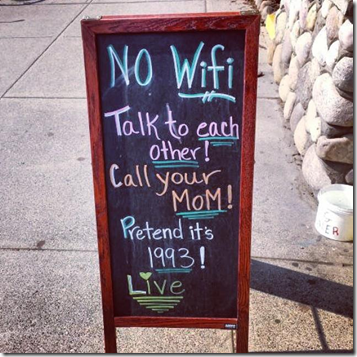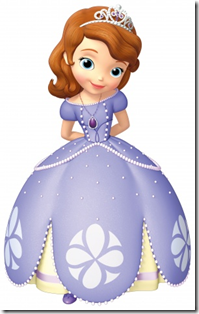Last week we dealt with two incredible acts of customer service stupidity by two large companies. As a person who has worked in the customer service industry as an employee, a manager and an owner of a business, I understand how little it takes to impress a customer and win him or her for life.
When the DJ client who I met with yesterday requested a change in meeting time twice in a 24 hour period, I immediately obliged, assuring them that it wasn’t a problem.
When they entered my home for the meeting, the first thing the bride did was thank me for my flexibility and tell me how much it meant to her.
It doesn’t take much to please a customer.
I also understand how little it takes to disappoint, anger and ultimately lose a customer, and how quickly and easily this negative experience can be passed onto others.
This is why these two acts of customer service stupidity astound me so much. Both could have been so easily avoided.
First, Elysha took our children, ages 5 and 2, on an Amtrak ride from Windsor to Hartford so the kids could ride the train. It was an activity recommended to her by another mother, and the kids loved it. My son loves trains, and my daughter is always up for a new adventure. It should’ve been an inexpensive way to spend an afternoon.

When they arrived in Hartford, however, Elysha was told that the returning train was delayed by more than two hours. It wasn’t going to be possible for her to wait at the Hartford train station for more than two hours with two small children, so after exhausting all other alternatives, she took a $33 cab ride back to Windsor. It was a stressful trip since she had no car seat for our son or daughter and was forced to hold Charlie in her arms.
Amtrak refunded the cost of the return ticket, but when she called customer service last week to request a refund on the cab ride, she was refused.
When she asked for a $33 credit for a future train ride, she was refused.
At one point, the customer service representative told her that because she had already accepted the refund on the return tickets at the station, it was impossible for him to compensate her in any other way.
Company policy.
Once compensation has been made, no other compensation is allowed.
I know. Ridiculous.
During their train ride, Elysha sent me photos from the train, and I tweeted one of the photos with a comment about how much fun my family was having on their short trip. Amtrak immediately tweeted back, pleased to hear that my kids were enjoying themselves.
When I tweeted a little later that things had not worked out like Elysha had hoped and that my family was stranded in Hartford, I heard nothing from Amtrak.
When we were refused a $33 refund or credit, I tweeted at Amtrak again, questioning their decision. Amtrak tweeted back at me almost immediately, recommending that I call customer service and providing the phone number. When I tweeted back that we had just spoken to customer service and refused compensation, Amtrak did not respond.
For a $33 credit, this company could’ve wiped away a frustrating and stressful afternoon from my wife and won a customer for life. My wife knows hundreds, if not thousands of people (not an exaggeration), and frequently champions the businesses that treat her well. When her credit card would not work at Whole Foods last year because of possible suspicious activity on the account and she was already late picking up our daughter at preschool, Whole Foods gave her more than $100 of groceries free of charge.
Just handed her the bags and told her not to worry about it.

Elysha told this story to everyone she knew for months and is a lifelong Whole Foods customer now, even if I sometimes wish she wasn’t.
Even I have given Whole Foods credit for their outstanding customer service.
Now she will be telling a different story. It will be a story about how a train company would not refund her $33 that she was forced to spend on a cab ride when their train was delayed by more than two hours.
Such a stupid way to do business.
On Thursday night, we were heading home from a speaking gig in Massachusetts when we stopped at a rest area on the Mass Pike for drinks. I ordered a soda at Boston Market and asked for cups for water for my kids. The employee gave me two small cups, but I discovered that there were no lids for the cups.

I went back to the counter and asked for cups with lids because we would be back on the road and I didn’t want my children to spill on themselves or the car.
I was informed that I could not be given cups with lids without paying for them.
I understand the company’s concern that I may use these cups for a beverage other than water, but this was a stupid decision. I clearly had two small children with me. They were standing beside me. Give me the damn cups and hope for the best.
Instead, I will not be doing business with that particular Boston Market, and perhaps all other Boston Markets, ever again. Moreover, I’ve already told this story to half a dozen people, and with this blog post and the subsequent Facebook posts and tweets, thousands more.
For the cost of two small, plastic cups, Boston Market has lost a customer.
What are these companies thinking?
Here are 11 of the best customer service stories ever.
Not surprising, Amtrak and Boston Market did not make the list.



























